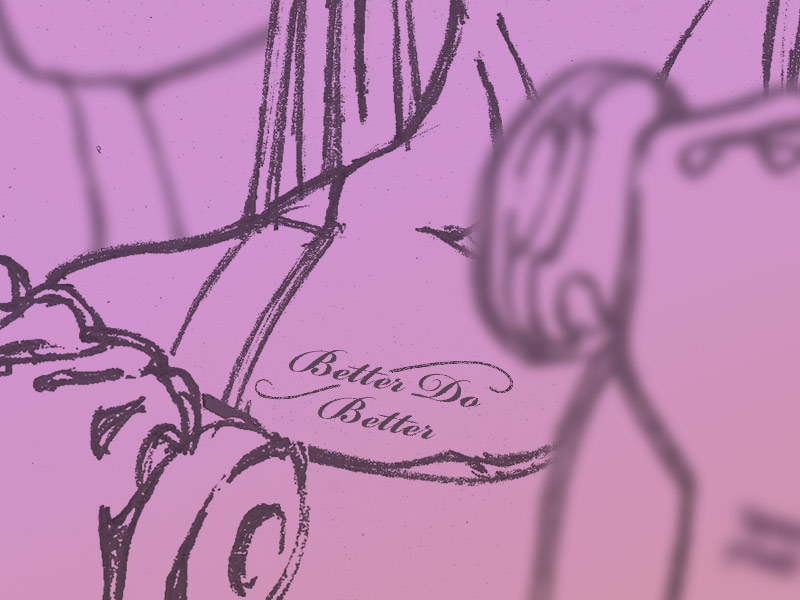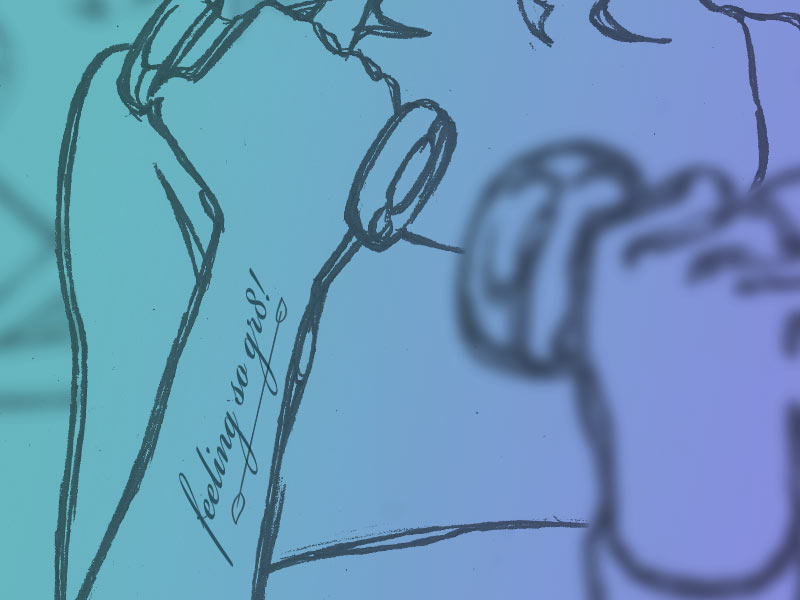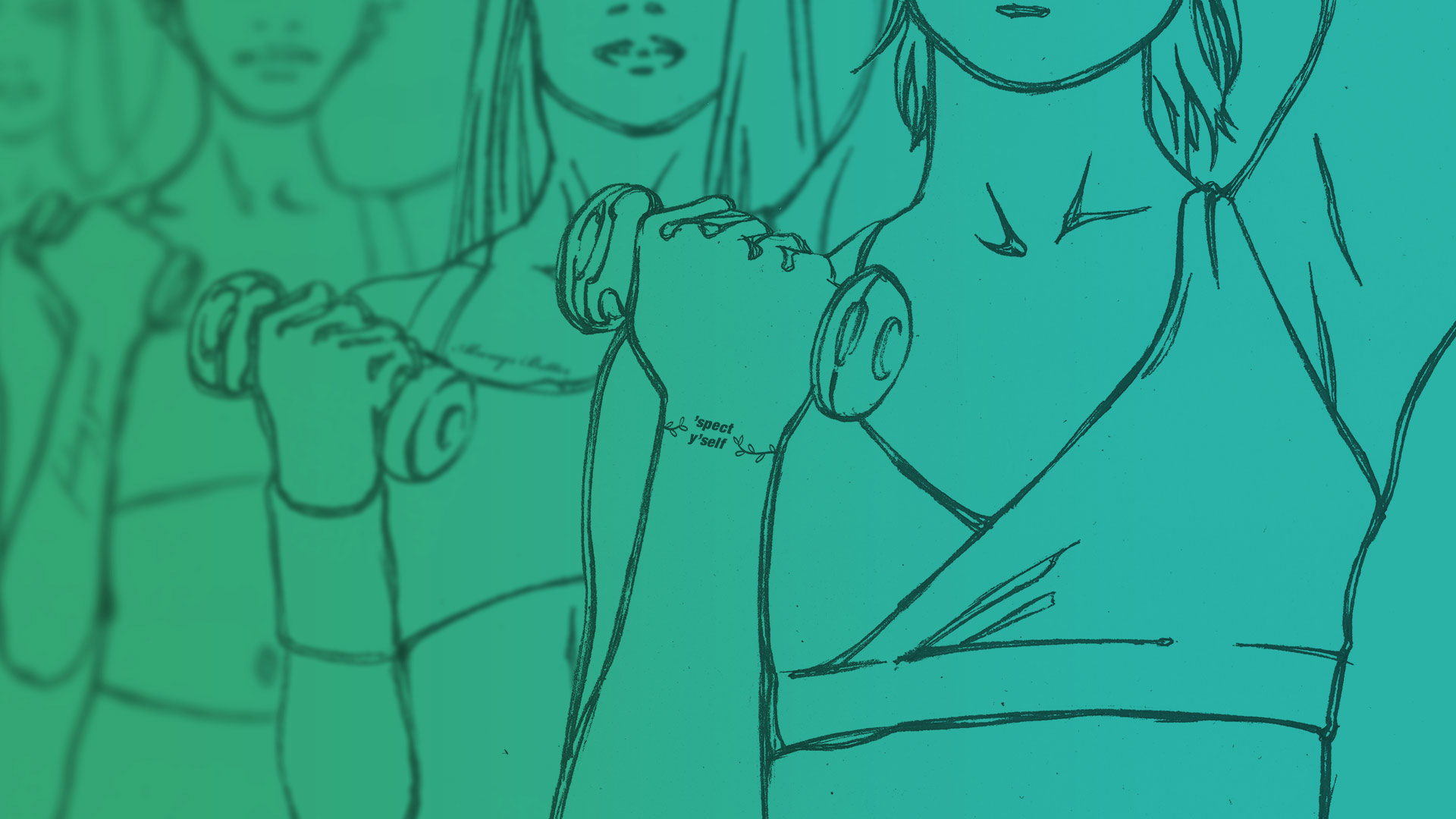Resolutions in the 21st century
During the festive break I found myself pondering on the positive aspects associated with the New Year: new beginnings, resolutions, goal-setting etc. It’s all good stuff. After all, who doesn’t want to improve their life? In keeping with this theme, it was my intention to write an inspirational piece to kick-start 2019. However, I also wanted to avoid the generic ‘New Year, New You!’ angle that can usually be found screaming at you from the January edition of the average lifestyle magazine. Although noble in intention, in my experience those suggested health overhauls and diet plans are less than sustainable. In 17 years of clinical practice I’ve yet to see a person succeed when they set the bar too high. ‘2019 – Become the Best Version of Yourself!’ A worthy goal, but for many, the expectation is just too much to handle.
Understandably most resolutions tend to focus on self-improvement. These fundamentally boil down to two things: joining the gym (which people attend enthusiastically during January and then find every excuse to avoid for the rest of the year); and embarking on a ‘diet’. Ah, the infamous ‘New Year diet’ resolution. Given my profession you’d be forgiven for thinking that this is one goal that I’d champion. Indeed, in my early years of practice I’m ashamed to confess that weight loss promotion was something I toyed with briefly. It wasn’t long before I developed a profound distaste for this particular approach. There are several reasons for this. Not least because I, and now thankfully a large proportion of the population, understand that dieting doesn’t work. More often than not, it provides a frustratingly short-term fix in a situation that requires long-term commitment and gradual lifestyle change. But the key reason for my dislike of ‘the diet’ is because all too often it encourages an unhealthy internal dialogue. The process of negative self-talk can impact on all areas of a person’s life which, for obvious reasons, does not equate to good health. And Health, ultimately, should be the focus of any dietary change.

…the key reason for my dislike of ‘the diet’ is because all too often it encourages an unhealthy internal dialogue.
This got me to thinking about the weight loss industry. Marketing for weight loss has become a huge, oftentimes misleading, highly lucrative business. At its worst it plays on the insecurities and the desires of the vulnerable. The mythical pursuit for body perfection leads its followers on a merry old dance. But never mind the inevitable disappointment caused by failed attempts, it’s the insidious nature of the industry’s approach that I find most offensive. The underlying suggestion that changing the way you look will make you a ‘better person’ is downright insulting. Because that’s the implication, isn’t it? Our lives will transform and improve magically if only we’d drop a few pounds. And yet now the situation has gone beyond general weight loss. Discussion of specific offensive body areas and features has become commonplace. On far too many occasions I’ve heard a client lament: “I just wish I could get rid of my stomach/thighs/bum etc. But what exactly are their expectations of the outcome?
To the logical mind it seems absurd to demonise specific areas of one’s body. Would these poor, maligned body parts be given a second thought if body-image wasn’t such a hot topic? It’s a Western affliction, for sure. I bet the Cacataibo tribeswomen of the Amazon don’t lose any sleep worrying about the cellulite they’ve accumulated after an evening’s indulgence on plantain and grubs. It’s pure supposition on my part but I can only imagine their self-talk to be a far more harmonious affair in the absence of such superfluous thoughts. Yet this form of insanity has become the norm in our lives. The media has tapped into an insecurity that has audiences obsessing over body image, very often at the expense of their health. Furthermore, it’s an insecurity that sells. From books, to lifestyle programmes, to cosmetics to food brands – the scope to make a profit is seemingly endless. Sadly this industry has helped forge a self-image scar which is becoming increasingly ingrained in the modern psyche.
I’m in the extremely privileged position of working with a wide range of clients, both in clinic and in the studio. I have to say that it is truly gratifying to help people improve their lives through their health. However there’s another side to my work that saddens me deeply. I’ve come across far too many people who, underneath a veneer of confidence, have a less-than-comfortable relationship with body image. This is often coupled with an equally painful relationship with food. And although a perpetual cycle of negative self-talk may be financially lucrative to a number of industries, it is highly damaging to the individuals concerned and to society as a whole. Mature women, young girls and now even children think nothing of being disparagingly critical about their bodies. With this, my job has become increasingly difficult. How to convince people that their self-worth is rooted in their substance as a human being in an environment which suggests that ‘how you look’ is of paramount importance?

I’ve come across far too many people who, underneath a veneer of confidence, have a less-than-comfortable relationship with body image.
Interest in such concerns seems to start at an alarmingly young age these days. This is not entirely surprising. Never mind television, magazines and billboards; electronic devices provide an easy gateway to articles, adverts, videos and discussions of this nature. And then there’s exposure to peers, many of whom absorb then repeat their own parent’s self-image neuroses and insecurities. It saddens me to think that my daughter might ever waste precious time engaged in damaging, image-conscious self-talk. I’m not going to pretend that image isn’t a factor in life. After all, I grew up in the ‘80s where style was everything. I’m not embarrassed to say that Lisa Lyon was and still is my role model, both aesthetically and in terms of achievement in her field. (If you don’t know who she is, look her up. She was the first female bodybuilder and her iconic physique was immortalised by Mapplethorpe.) However looks and style in the ‘80s came with a caveat. You only have to watch a John Hughes film to know that looking good was nice, but being good was nicer. Today’s Instagram ‘culture’ is largely devoid of any back story. It’s all about a look that the ‘kids of today’ can aspire to.
There’s absolutely nothing wrong with wanting to improve oneself physically. As a Pilates Instructor my role is to help people enhance their lives through body mastery and movement. I believe that you can’t put a price on a healthy, functioning body. However it requires effort and application to achieve such goals. Conversely, nowadays you can pretty much buy yourself a better body (superficially, of course). The colloquial interpretation of being the ‘best version of yourself’ is focused in the main on external appearances. Not so different to the attitude of my ‘80s youth, you might say, although these days people are prepared to go to more extreme measures to achieve their goals. We now have access to a thriving cosmetic surgery industry which all too often offers unnecessary, potentially-damaging procedures, some which you can even have done on your lunch break!
Don’t get me wrong. I’m all for change that can enhance mental well-being. I’m all for weight loss if it is required to regain and improve physical health. I’m all for surgical intervention if it is going to provide life-changing improvements which, in turn will impact positively on mental health. And I have nothing against facelifts, tummy tucks, breast implants, Botox etc. I have no doubt that all of these can provide a confidence ‘boost’. However I can’t help thinking that in many cases such procedures only serve to perpetuate a less-than-healthy mental cycle; that they are encouraging the wrong kind of internal conversation. Although it undoubtedly has an impact on our inner well-being, how we look is less important than how we feel. And I think that we’ve lost that fundamental understanding. I think we’ve become so focused on what’s on the surface that we’ve lost sight of what’s important at the core. It’s a cliché but perhaps we need to come back to an understanding that true change comes from within. Otherwise it’s just ‘wallpaper’. We can strip it off and replace it with a new design, but if the wall underneath needs re-plastering no amount of fresh paper is going to improve its integrity.
Read More

Let’s Get Physical

Nature Nurture

All Good Intentions

Child Friendly Fayre

Soul Food for Challenging Times

